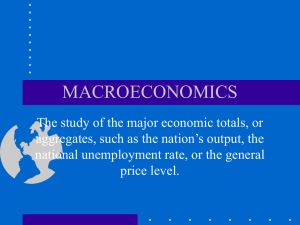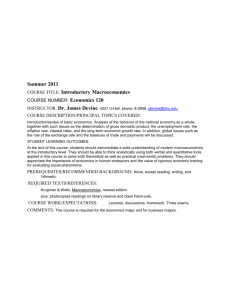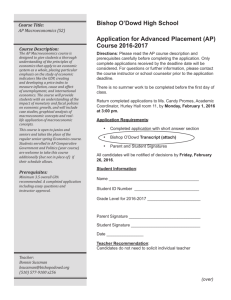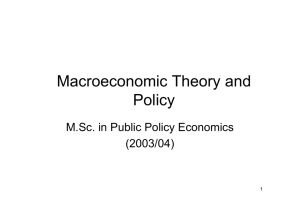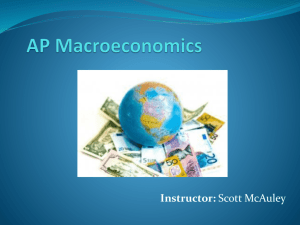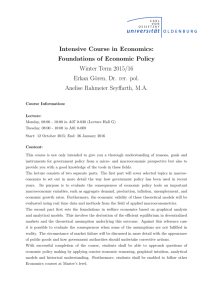INTERNATIONAL SUMMER SCHOOL FOR UNDERGRADUATES PRINCIPLES OF MACROECONOMICS Key Information
advertisement
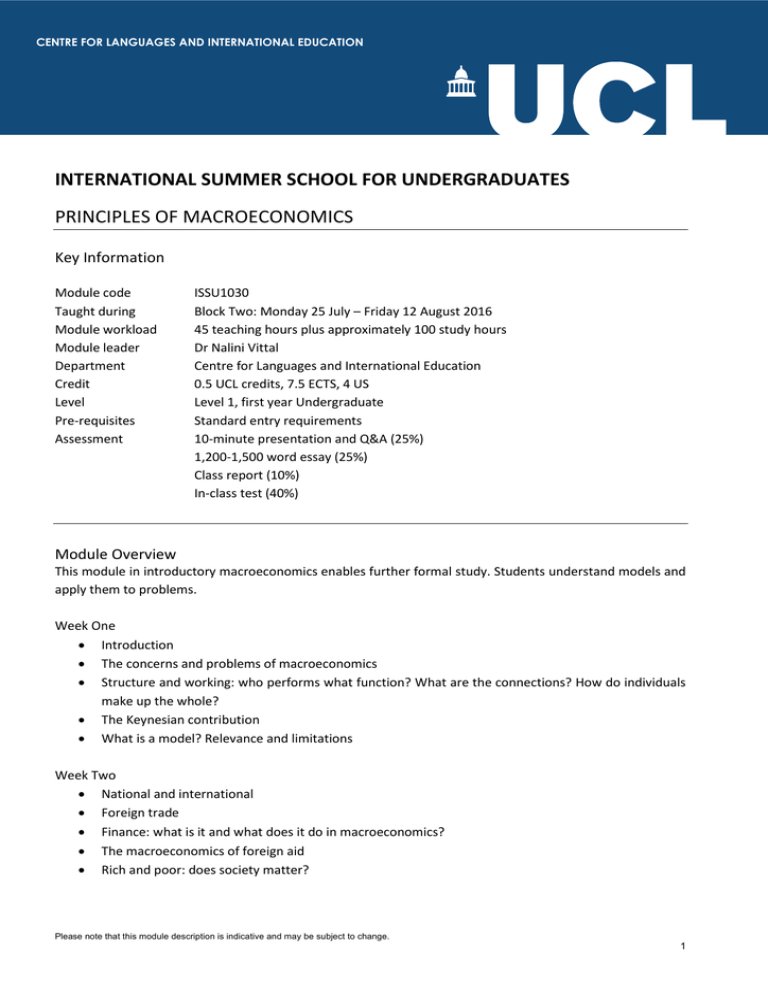
CENTRE FOR LANGUAGES AND INTERNATIONAL EDUCATION INTERNATIONAL SUMMER SCHOOL FOR UNDERGRADUATES PRINCIPLES OF MACROECONOMICS Key Information Module code Taught during Module workload Module leader Department Credit Level Pre-requisites Assessment ISSU1030 Block Two: Monday 25 July – Friday 12 August 2016 45 teaching hours plus approximately 100 study hours Dr Nalini Vittal Centre for Languages and International Education 0.5 UCL credits, 7.5 ECTS, 4 US Level 1, first year Undergraduate Standard entry requirements 10-minute presentation and Q&A (25%) 1,200-1,500 word essay (25%) Class report (10%) In-class test (40%) Module Overview This module in introductory macroeconomics enables further formal study. Students understand models and apply them to problems. Week One Introduction The concerns and problems of macroeconomics Structure and working: who performs what function? What are the connections? How do individuals make up the whole? The Keynesian contribution What is a model? Relevance and limitations Week Two National and international Foreign trade Finance: what is it and what does it do in macroeconomics? The macroeconomics of foreign aid Rich and poor: does society matter? Please note that this module description is indicative and may be subject to change. 1 Week Three Perspectives and themes Current problems, solutions, 'debates' Examine one or two contemporary themes Some macroeconomists and their contribution The financial crisis: lessons for macroeconomics Module Aims This module will introduce students to the structure and workings of modern economic activity, focussing on macroeconomics. Students will identify influences in the national and international economies, and consider the role of government policy. Students will learn basic approaches in macroeconomics and the value of models. They will proceed to consider different perspectives. Problems will be discussed in groups to enable participatory learning and students will apply macroeconomic theory to debate issues in the real world. Teaching Methods Interactive lectures and seminars, open class and small group discussions, excursions, group work and private study. Reading lists will be available online via the UCL library site. Students will be directed towards class materials and further support on Moodle once the course starts Learning Outcomes Upon successful completion of this module, students will: • • • • • Feel familiar with major macroeconomic terms and concepts Understand the parts of the macroeconomy and how they work and relate to each other Understand macroeconomic processes in the real world Describe the part played by policy in modern economic activity, and discuss the strengths and limitations of models Select a problem to analyse and be able to discuss it orally and in writing Assessment Methods • • • • 10-minute presentation and Q&A (25%) 1,200-1,500 word essay (25%) Class report (10%) 2-hour in-class test (40%) Key Texts Anderton, Alain (2008, 5th edition), Economics, Causeway Begg, Fisher & Dornbusch (2003, 7 e) Economics, Maidenhead: McGraw Hill Krugman, Wells and Graddy (2007) Economics: European Edition. Basingstoke: Palgrave Macmillan and Worth Publishers Lipsey, Richard and Chrystal (2007, 11e) Economics. Oxford: OUP Parkin, Powell & Matthews (2007, 7e) Economics, Harlow, Pearson Please note that this module description is indicative and may be subject to change. 2
